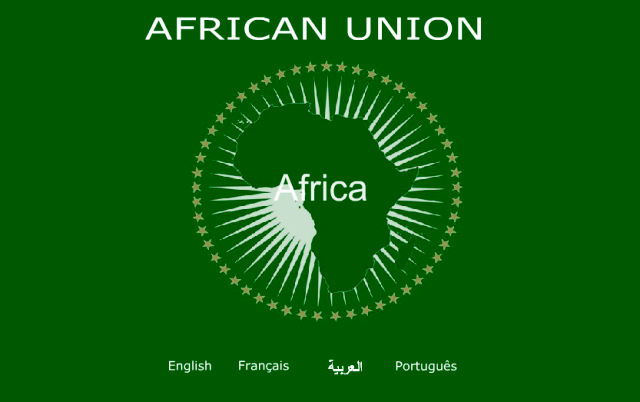 By: Erica Dhawan
By: Erica Dhawan
The fight for new recruits is intense — not just in the tech sector, but across all industries. According to the Society for Human Resource Management (SHRM), late 2015 was the most difficult hiring period in four years. But as the Snapchat story establishes, connecting with today’s workforce no longer simply means going to the usual places and doing the usual things.
These days, I advise Fortune 500 executives to treat talent as they would customers: Understand their behavior, and design recruiting strategies that meet them where they are. Following are three such innovative approaches for connecting with top talent.
Don’t keep relying on the same old social media platforms.
SHRM reports that 84% of organizations use social media for recruiting, and 82% of them use it primarily in the hunt for passive candidates. If so many companies are using social media, it must be effective, right? Well, not necessarily. What this high percentage means is that on the most popular social media platforms — LinkedIn, Facebook, and Twitter — you’re already vying with your competition for the same pool of expertise.
So venture out. Connect with other online platforms where people gather for the pleasure of sharing knowledge. For developers, that may be Stack Overflow, a question-and-answer site specifically for programmers. For the medical field, it may be Doximity, which 60% of U.S. physicians are members of. For Millennial women, it might be Levo or The Muse. For people in other professions, it may be Quora, a website that hosts questions and answers on subjects from programming languages to fashion to the outbreak of the Zika virus.
What’s the trick? It’s pretty straightforward: Go on a platform connected to the industry you’re recruiting for, and then look for people who are using the platform to have smart, relevant conversations. If you are impressed by someone’s questions, answers, or other posts, you may just have identified a potentially valuable employee.
At least one company has worked Quora specifically into its recruitment strategy. Highfive, a Silicon Valley–based video and web conferencing supplier, uses Quora to connect “with like-minded individuals.” The company was already developing content, targeted specifically at recruits, that demonstrated its “culture and the type of company we want to be in 1, 5, and 10 years.” By distributing this message through the Quora community, Highfive was “able to attract the type of people we want, and do it in an original way.” Such innovative solutions have paid off: Fortune magazine recently named Highfive to its list of the 10 Best Small Workplaces in Technology.
Generate and nurture your own talent channels.
Genesys, a pioneer of customer experience and call center software, has offices across the globe, and it’s growing quickly, having acquired 10 companies since 2012. Part of its success is that the company supports a collaborative work environment and boasts transparent operations from the top down. But a few years ago, delays in signing new hires were impairing its expansion; in 2013, the average time to hire was 100 days.
Merijn te Booij, Genesys’s chief marketing officer, decided to stop waiting for the perfect candidate to appear though established channels. He partnered with HR to start an associate program that put new college and experienced professionals through an intensive three-week training, later pairing them with a mentor for ongoing counsel. Since 2014, Genesys has graduated nearly 70 associates from the United States, Africa, South Korea, Malaysia, and South America.
In addition, Genesys began actively networking to build a talent pool, and even organized a two-hour event to introduce high school students to the company’s products. Genesys staff plans to remain connected with these students, who may later return as interns or new hires upon graduation.
The results of these efforts have definitely paid off: In 2014, the average time to hire was 50 days — half the time of the previous year. Just one year later, Glassdoor named Genesys one of the Best Places to Work for 2015.
Looking for Millennials? Address their specific concerns — and make it funny.
Poor Owen. In GE’s recent recruitment advertising campaign “What’s the Matter with Owen?” the fictional star couldn’t find anyone to share his excitement about his new job, a developer for GE. Everyone he knew was stuck in the same ideological rut: GE is a manufacturer, they thought, not a place to change the world.
At a surprise party, his friends struggle to maintain their masks of encouragement. At a backyard gathering, Owen is upstaged by a friend who will be working for an “app where you put fruit hats on animals.” In his family’s living room, his proud parents give him his “grandpappy’s” giant hammer.
GE knew that it had an image problem, one that was especially problematic for Millennials who value purpose over paycheck. The company needed to spread the message that, in fact, GE is involved in fascinating projects that will affect the world in positive ways. And what GE and its ad agency, BBDO, knew is that humor is one of the most effective ways to connect with this age group. In a 2012 online survey of 2,000 people born after 1981, 88% of people reported that humor is essential to their sense of self. Tanya Giles, former executive vice president for research at MTV Networks, told the New York Times, “One big takeaway is that unlike previous generations, humor, and not music, is their No. 1 form of self-expression.”
The “What’s the Matter with Owen?” campaign premiered on the first episode of The Late Show with Steven Colbert, the perfect outlet to reach a demographic that prefers comedians to sports stars. Since then, the campaign has been viewed more than 800,000 times on YouTube.
As these examples show, connecting to top talent today is about re imagining the possibilities of leveraging all kinds of networks. It’s about connecting in the right places and with the right attitude. And while picking through the dense online tapestry may be daunting, remember you already employ a staff of experts. Current employees can tell you which sites they use to connect with like-minded individuals, and they can also help you to launch networks that are organized to meet your company’s specific needs.
Source: Harvard Business Review


